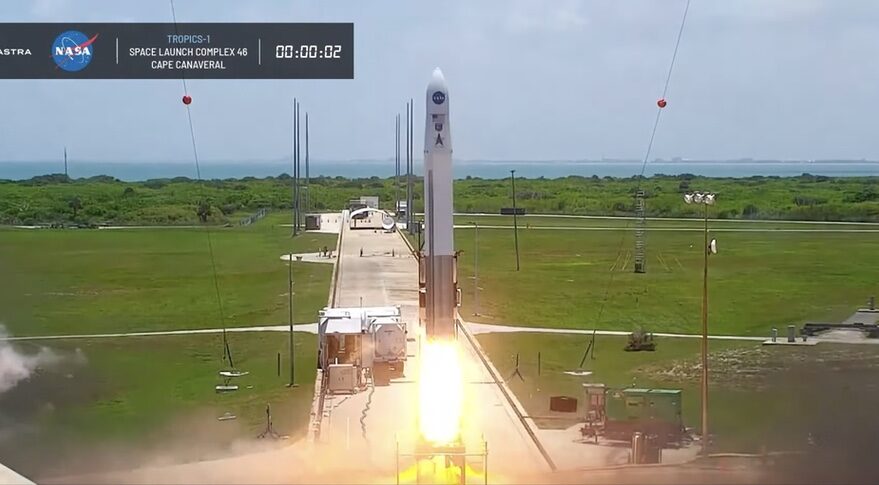KIHEI, Hawaii — NASA and Astra Space have revised a launch contract originally awarded for the launch of a cubesat constellation after Astra retired the launch vehicle that would have launched those spacecraft.
Astra had a contract for three launches of its Rocket 3.3 vehicle, each carrying two of NASA’s Time-Resolved Observations of Precipitation structure and storm Intensity with a Constellation of Smallsats (TROPICS) cubesats under a $7.95 million contract awarded in February 2021. However, the first launch in June failed to reach orbit, resulting in the loss of two TROPICS satellites.
Astra announced Aug. 4 it was retiring the Rocket 3.3 vehicle so that the company could focus on the larger Rocket 4, with a payload capacity of up to 600 kilograms versus 50 kilograms for Rocket 3.3. While Astra said at the time it was in discussions with NASA about using Rocket 4 for launching the remaining TROPICS satellites, the larger vehicle would have been a poor fit for those 3U cubesats and would have required NASA to wait until perhaps 2024 given Astra’s projected development schedule for Rocket 4.
NASA announced Sept. 28 it agreed with Astra to modify that contract. Instead of launching TROPICS cubesats, the contract will be used for “the launch of comparable scientific payloads” on Rocket 4. The agency will solicit proposals from companies that are part of its Venture-Class Acquisition of Dedicated and Rideshare (VADR) contract for smallsat launch services to launch the TROPICS cubesats in time for the 2023 hurricane season.
NASA selected a dozen companies, including Astra, for the VADR contract in January and recently added Firefly Aerospace. Those companies are eligible to bid for task orders from NASA for launching smallsats either on dedicated missions or as rideshare payloads on larger vehicles.
“We are delighted to maintain our strong partnership and to have NASA as a launch customer on the next version of Astra’s rocket,” Astra said in a statement. Neither the company nor NASA disclosed details about the contract modification, including how many launches it will cover and when those launches could take place.
The cause of the June 12 Rocket 3.3 launch failure remains under investigation. In a separate statement Sept. 28, Astra said it narrowed down the cause of the failure to an issue with the upper stage engine, which shut down early after consuming fuel at a higher rate than planned.
That issue, Astra stated, has been verified in ground tests “that yielded results consistent with the failure condition in flight.” The company said it would disclose more details once its failure investigation is completed in cooperation with the Federal Aviation Administration.

